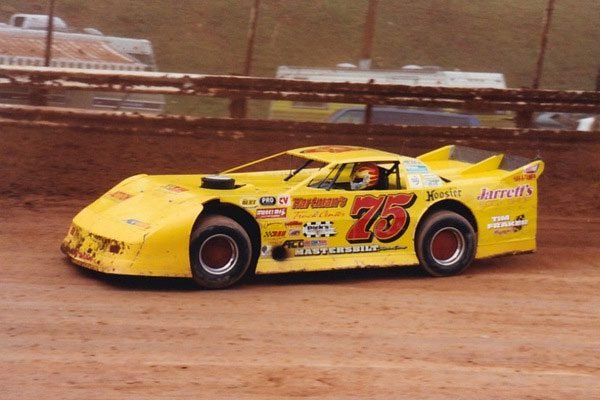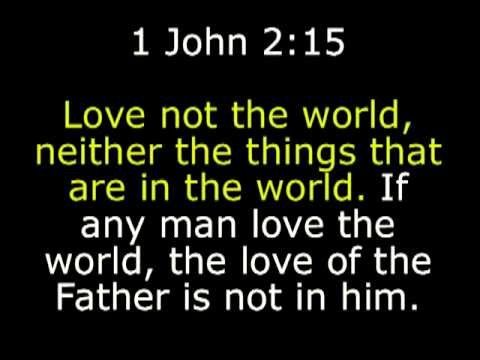
Several years ago, my friend Bob Felton wrote:
Certainly, I do not mean to relieve Christian cultists of their moral responsibility for their sometimes very bad behavior. It does bear mention, however, that those who are raised in this nonsense live in an environment where cult ethics are the norm — and the New Testament affirmatively does cultivate cult ethics (see Matthew 12:46-50 for a famous example). Such people are reared with an Us (People of God) vs. Them (the wicked, wicked, world) worldview. They are incapable of seeing themselves as skeptics see them, and very often do sincerely believe their bad behavior pleases an Invisible Friend.
Maybe Bruce could weigh-in and let us know what he taught on this subject when he was preaching?
I was raised in the Independent Fundamentalist Baptist (IFB) church movement. I made a public profession of faith and was baptized as a fifteen-year-old boy at Trinity Baptist Church in Findlay, Ohio. Several weeks later, I announced to the church that God was calling me to preach. Two weeks later, I preached my first sermon from 2 Corinthians 5:20:
Now then we are ambassadors for Christ, as though God did beseech you by us: we pray you in Christ’s stead, be ye reconciled to God.
Four years later, I left Bryan, Ohio, and moved to Pontiac, Michigan to enroll in classes at Midwestern Baptist College. While there, I met and married the daughter of IFB preacher and Midwestern grad Lee Shope. In the spring of 1979, Polly and I left Midwestern and moved to Bryan, the home of my birth. A few weeks later, I was asked to be the assistant pastor of Montpelier Baptist Church — a fast-growing General Association of Regular Baptist Churches (GARBC) congregation. Thus began my official entrance into the ministry. The next twenty-five years would take us to churches in Ohio, Texas, and Michigan. While my theology and practice would evolve over the course of my ministerial career, how I viewed the “world” and its opposition to Evangelicalism remained constant. While it is certainly true that I was far more ecumenical at the end of my career than at the start, my opinion of the “world” remained the same.
From start to finish, I believed the Bible was the inspired Word of God. Yes, my view on Bible inerrancy and infallibility evolved over the years, but I always believed that the Bible was a supernatural book; a book different and above all other books. Thus, I took seriously the teachings of the Bible.
In 1 John 2: 15-17, the Bible says:
Love not the world, neither the things that are in the world. If any man love the world, the love of the Father is not in him. For all that is in the world, the lust of the flesh, and the lust of the eyes, and the pride of life, is not of the Father, but is of the world. And the world passeth away, and the lust thereof: but he that doeth the will of God abideth for ever.
2 Corinthians 6:14-18 states:
Be ye not unequally yoked together with unbelievers: for what fellowship hath righteousness with unrighteousness? and what communion hath light with darkness? And what concord hath Christ with Belial? or what part hath he that believeth with an infidel? And what agreement hath the temple of God with idols? for ye are the temple of the living God; as God hath said, I will dwell in them, and walk in them; and I will be their God, and they shall be my people. Wherefore come out from among them, and be ye separate, saith the Lord, and touch not the unclean thing; and I will receive you. And will be a Father unto you, and ye shall be my sons and daughters, saith the Lord Almighty.
And have no fellowship with the unfruitful works of darkness, but rather reprove them.
As a Bible-believing man of God, I found these verses clear: Christians were to separate themselves from the world and avoid contact with unbelievers. This Us vs.Them view of the world theme runs throughout the Bible, from Genesis to Revelation. In the Old Testament, God picked Israelis (Jews) as his chosen people. They were commanded to separate themselves from the heathen nations of the world. God even commanded the Israelites to murder nearby worshippers of false Gods so that they wouldn’t influence and infect God’s chosen ones. Even in the book of Revelation, we find God winnowing the Us from the Them. Separation, then, from the world, has always been God’s standard of conduct for those who worship him. How this separation is practiced varies from sect to sect, church to church, and Christian to Christian.
I taught congregants that they were to separate themselves from the world as much as they could. It would be impossible to totally separate one’s self from the world, but interaction with the unwashed, uncircumcised Philistines of the world should be limited to necessary acts of commerce. And even here, Christians should seek to distance themselves from the taint of the world. I remember a time when I tried to find a grocery store that didn’t sell alcohol. I found one store, a Mennonite-owned store in Muskingum County. Things were horribly expensive, and the store carried a limited supply of goods. After a few weeks of shopping there, I gave up and went back to the “world.” Notice that I use the “I” pronoun, and not “we.” This was back in our patriarchal days. I was the head of the household. Deciding where we shopped was up to me, not Polly. How “separated” Polly wanted to be didn’t matter. She was going to be as separated from the world as I was — at least outwardly.
Separation from the world affected every aspect of our lives, from the clothes we wore to where we went for entertainment. It was not uncommon for me to ask, “What would Jesus say or think if we went here or did this or that?” WWJD (What Would Jesus Do) deeply influenced my thinking, decision-making, and preaching. “Would Jesus go here?” “Would Jesus associate with this person?” This kind of thinking fueled my Us vs. Them mentality. I frequently preached sermons on separation and holiness; how True Christians® separate themselves from the world and abstain from the very appearance of evil. Evil, of course, being any behavior deemed sinful by one Rev. Bruce D. Gerencser, certified man of God. Years ago, I attended a Buckeye Independent Baptist Fellowship Meeting for preachers in Columbus. Such meetings were times for likeminded preachers to get together and gossip, break bread, and listen to preaching. One preacher preached from Ephesians 4:27: “Neither give place to the Devil.” After reading his proof text, this man spent the next 40 or so minutes listing every behavior he deemed “giving place to the Devil.” He hit all the big sins, getting raucous AMENS from many of the preachers in attendance. In 2015, I wrote a post titled, An Independent Baptist Hate List. I listed some of the people and things IFB preachers hate:
- Roman Catholics
- Charismatics
- Pentecostals
- Arminians
- Calvinists
- Denominational Baptists
- MTV
- Television
- HBO
- Secular radio
- Contemporary Christian music
- Christian TV
- Pagan holidays
- Rock and Roll music
- Long hair on men
- Short skirts on women
- Pants on women
- Shorts on women
- Smoking
- Alcohol
- Hollywood
- Atheism
- Secularism
- Humanism
- Pluralism
- Socialism
- Communism
- Liberals
- Progressives
- Democrats
- Bill Clinton
- Liberal Christian colleges
- Female preachers
- Effeminate male preachers
- Effeminate men
- Hen-pecked men
- Haughty women
- Church members who disagree with the pastor
- Premarital sex
- Extramarital sex
- Christmas
- World Council of Churches
- National Association of Evangelicals
- Billy Graham
- NIV
- The Living Bible
- Dancing
- Card Playing
This list is but the tip of the iceberg when it comes to the people and things hated by Fundamentalist Christians. The goal of all this “hating” is to create a vast space between Us and Them; between the saved and the lost; between True Christians® and Christians in name only. While certainly many Fundamentalists just go along with the rules to fit in, many of them are true believers. I know I was. James 1:27 described “pure religion” this way:
Pure religion and undefiled before God and the Father is this, To visit the fatherless and widows in their affliction, and to keep himself unspotted from the world.
Want to have “pure religion” and be undefiled before God? Keep yourself unspotted from the world. Unspotted means unblemished, irreproachable, unsullied, free from vice. A sure way to accomplish this is to stay away from the “world.” 1 Peter 1:15-16 commands Christians to be holy in all manners of “conversation” (lifestyle). Why? Because as God is holy, we should be also. How many Christians do you know who keep themselves unspotted from the world; who are holy in all manners of conversation? That’s a rhetorical question, by the way. The answer is NONE. No matter how hard Fundamentalists try to keep a clear, distinct difference between Us. and Them, they generally have the same wants, needs, and desires as unbelievers. Certainly, Christian Fundamentalists try their damnedest to be and stay “right with God,” but the fact remains that they sin, according to the Bible, in thought, word, and deed. No matter how hard they try to distance themselves from the “world,” the world and its wonders creep in.

While I became more liberal and progressive in the latter years of my ministerial career, I don’t know that I ever shook Us vs.Them thinking. I did, in retrospect, conclude that I was quite the hypocrite. I would stand behind the pulpit on Sundays and preach against the world, calling on congregants to separate themselves from evil works of darkness. But on Saturday, I would load my family into our car and drive to a nearby dirt race track so we could watch the races. If there was ever place where the “world” and its vices were on full display, it was the race track. Yet, Pastor Bruce, his dress-wearing wife, and their children attended races at tracks such as RR Speedway, Midway Speedway, KC Speedway, and Skyline Speedway. Sometimes, we would attend races on Friday and Saturday night. One Saturday, we planned to attend a big S.T.A.R.S. race at Midway. All the big-name dirt track racers would be there. Unfortunately, it rained, and the race was postponed to the next day, Sunday. “What I am going to do?” I thought at the time. The “right” thing to do was to go to church just like we did EVERY Sunday night. But creative Bruce schemed a way to do both. Rather than preach Sunday night, I, instead, planned for us to have a “special” communion service after our afternoon church meal. By doing this, we were able to make it to the races on time. I battled guilt for a bit, but once I smelled wafts of racing fuel and heard the thundering noise of late model race cars, my mind quickly turned to racing. And boy, what a night of racing it was, as my older sons can attest.
I am sure by telling this story, and others I have told over the years, that my critics see evidence that I was never a True Christian®. However, on balance, I really tried to keep myself unspotted from the world. I really tried my best to avoid contact with unbelievers outside of commerce and evangelization. But try as I might, the world, the wild, wonderful world, sometimes called out to me, and more often than not, I gave in and indulged my so-called “fleshly” desires.
We left Christianity in 2008, which afforded my wife and me the freedom to live in the “world” without feeling sinful or guilty. We do what we want to, no regrets. While Us vs. Them can still affect my thinking, especially when it comes to politics, I try my best to be “worldly.” I missed out on a lot of life during the first fifty years of my life. No longer. It’s wonderful to have the freedom to do whatever I want, with no thought of what God (or others) might say. I only wish I had the young, healthy body that I had in my preaching days. Some race tracks have what are called “run what you brung” races. No rules, just race the car you pull off your trailer. That’s life for me these days. My life may be a banged-up street stock on its last leg, but I intend to race it as hard and as fast as I can until I reach the finish line.
How about you? Were you taught to view the “world” as Us vs. Them? Did your church or pastor preach against the world? What behaviors were considered “worldly?” Were you a hypocrite? Did you try to abstain from the appearance of evil, but fail to do so? Please share your stories in the comment section.
Bruce Gerencser, 68, lives in rural Northwest Ohio with his wife of 47 years. He and his wife have six grown children and sixteen grandchildren. Bruce pastored Evangelical churches for twenty-five years in Ohio, Texas, and Michigan. Bruce left the ministry in 2005, and in 2008 he left Christianity. Bruce is now a humanist and an atheist.
Your comments are welcome and appreciated. All first-time comments are moderated. Please read the commenting rules before commenting.
You can email Bruce via the Contact Form.



